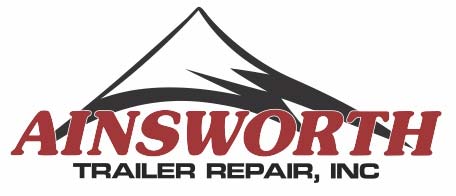Making sure that your hitch is properly suited to your trailer is one of the most important parts of trailer maintenance, as failure to do so can lead to loss of control of your trailer, resulting in an accident. With a bit of research and a reliable trailer repair service, finding the perfect hitch for your trailer can be quite simple. Our experts at Ainsworth Trailer Repair have outlined a few important things to help you through this process.
Owner’s manual
The first information to reference before choosing a trailer hitch or heading over to a trailer maintenance company is your vehicle owner’s manual. In here you will find three important pieces of information that will determine your trailer hitch type: trailer type, trailer weight and vehicle towing capacity.
The trailer type is a broad term that will help you narrow down your potential trailer types greatly. There are many trailer types, but it comes down to size of trailer that are more suited for specific vehicles.
Trailer weights are separated into light or heavy-duty categories and will determine the design of your hitch. For example, for heavy-duty towing with a pickup truck, a fifth wheel hitch that is installed inside the truck bed is needed. Alternatively, if you are transporting a smaller sized trailer then the standard trailer hitch receiver, also called a “bumper hitch”, is used.
The towing capacity will determine the class of the trailer hitch suited for your vehicle. There are five classes: Classes I and II comprise trailers that carry light loads, whereas Classes III, IV and V refer to trailers that are designed to handle heavier loads.
Hitch types
Bumper hitches are standard hitch types that are made of a piece of steel that bolts to your vehicle’s frame. They can be used to tow a trailer as well as carry bike racks and cargo carriers. Bumper hitches come in different designs, each suited to the specific trailers mentioned above.
Fifth wheel hitches are designed to install inside the truck bed of pickup trucks that carry heavy duty towing of 15,000 to 30,000 pounds. Due to the necessity of fifth wheel hitches remaining in front of your truck’s rear axle, they are best suited for long bed, full-size trucks.
Gooseneck hitches are designed for pickup trucks used for heavy-duty towing and are installed inside the truck bed just like fifth wheel hitches. However, unlike fifth wheel hitches, they can be used with short-bed trucks and can be installed under the truck bed to allow for use of the truck bed when you are not towing.
Front mount hitches are designed for trucks and SUVs and are the best choice for carrying gear and equipment such as winches, bike racks and spare tires. They are installed by being bolting to vehicle frames and are built unique to each vehicle’s specific manufacturer model.
Each of the hitch types mentioned above are best suited for various trailers and vehicles and can be properly installed by our trailer maintenance experts at Ainsworth Trailer Repair.



